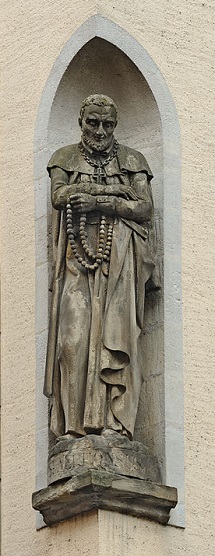The Baltimore Catechism
Last year I wrote about Doctrina Christiana, St. Robert Bellarmine’s catechism for adults. Though excellent, it’s also rather short. Not that a catechism should go into great detail on every point, since it’s intended as a brief introduction to Christian doctrine, primarily stating what the Church’s main doctrines are and not a full explanation, but one can easily think of enough additional questions after reading it that many readers would benefit from something longer. Of course, one could look to the Catechism of the Catholic Church, but this is long enough to be intimidating and, in some cases, doctrines aren’t spelled out as clearly as in Bellarmine’s catechism. I’d still highly recommend keeping a copy of the CCC on hand, but the ideal would be a catechism somewhere in between.

